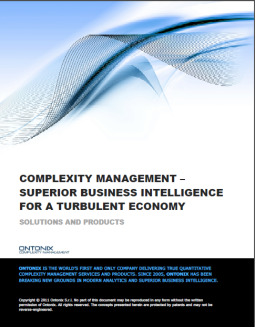Andy Haldane addressing the – Parliamentary Commission on Banking Standards
“The first line of defence has to be risk management within the firm. We have seen a significant scaling up in both the resourcing and the influence of the risk management function in banks over the last 4 or 5 years… There are very few, if any, global banks who can conduct effective, consolidated, across-the-whole-balance-sheet risk management. Many of their systems simply make that if not impossible then certainly unsure. There is still work to be done to put IT systems and risk management systems on a wholly different footing that have been in the past. The systems are not in a state of health that allow this holistic across the balance sheet aggregation of risk. Of all the shocking things that I have come across in the last 4 or 5 years, among the most shocking, was the inability of the biggest banks in the world to simply add up the numbers. The IT spend that has occurred has tended to be focused on business lines. It hasn’t allowed a joining up of data, core data, across the whole balance sheet. It is a pre-requisite to the essential building block of effective risk management. It does not exist at present in too many big firms”.
AH is very assured, knowledgeable and speaks with great clarity on some very complex issues. This is well worth watching. Just in case my own comment doesn’t make it through the approval process, here it is!
Andy Haldane’s "Systems Thinking" approach to resolving so many of the issues at, or as close as one can realistically get to, source is a welcome breath of fresh air. The only thing that HAS been lacking is the means to measure (and therefore) manage both complexity and resilience of individual firms i2o [inside to out]. Creating more regulation and adding more cost to TREAT SYMPTOMS makes no sense.
“Adding complexity to cope with complexity is a seriously flawed approach” McKinsey. http://wp.me/p16h8c-yU
Basel III: Why bother when the prequel was a flop: “…complexity breeds complexity, and is subject to diminishing returns. Eventually the costs of increased complexity exceed the benefits” Prof John Kay http://wp.me/p16h8c-yj
KNIGHT or NINJA?
Reducing "flexibility" through partitioning or "ring-fencing", when AGILITY is a prerequisite for every business in the Digital Age, could only make sense to career regulators, lawyers and politicians intent upon ignoring the “law of Requisite Variety”. The era of the Medieval Knight is long past and a "suit of armour" may mask but won’t change culture!!!
In the words of Dave Snowden "Practice without sound theory will not scale".
Acceptance of the inability to build mathematical models…to mislead all-and-sundry…and of (Knightian) Uncertainty should be the start of a cultural change that, with the ability to measure the inherent (but currently ‘hidden’) complexity risk, enables transparency – whilst protecting sensitive commercial information – and the process of (re)building both system and systemic resilience. Ninja warriors live by a strict code and act with great agility.
Even when the DNA is similar “we can’t fix today’s problems with yesterday’s tools” http://wp.me/p16h8c-18g





















